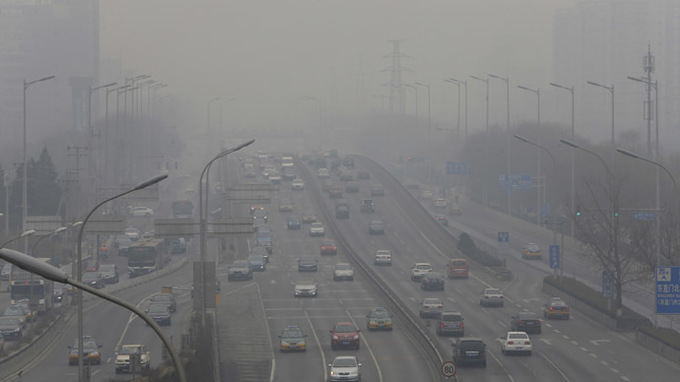Northern China ozone pollution getting worse: study
- Reuters


Concentrations of hazardous ground-level ozone have worsened in northern China despite country-wide efforts to tackle air pollution, according to a study published by Peking University on Tuesday.
Stringent winter restrictions on industry, transportation and coal consumption enabled smog-prone northern Chinese regions to meet politically crucial air quality targets for the 2013-2017 period.
But while concentrations of hazardous airborne particles known as PM2.5 fell, average daytime ozone levels jumped sharply, according to a study of pollution data in 33 northern cities by Peking University’s Guanghua School of Management and the Center for Statistical Science.
Also known as “sunburn for the lungs”, ozone is caused by the interaction of sunlight with nitrogen oxides and the vast amounts of uncontrolled volatile organic compounds (VOCs) produced by burning fossil fuels. Traffic congestion is a major cause.
Ozone is one of six components of China’s official air quality index, along with sulphur dioxide, nitrogen oxides, carbon monoxide, PM2.5 and larger airborne particles known as PM10.
Ozone rose throughout the region, with concentrations up 40 percent or more in 10 northern cities from 2014 to 2017, the study said. Cuts in other forms of pollution are believed to have contributed to the rise.
“Regional declines in the amount of PM2.5 and PM10 have reduced the volume of floating particles and increased the strength of the sunlight required to produce ozone,” the paper said.
A study by Chinese researchers published last year identified ozone as a growing health risk that had caused a rise in deaths from strokes and heart disease.
“If you look at the public health impact PM2.5 is responsible for more than a million premature deaths per year, whereas ozone is somewhere above 100,000,” said Lauri Myllyvirta, clean air campaigner withenvironment group Greenpeace.
“But last summer, ozone really spiked and it is deservedly going to get more attention,” he said, adding that China should set targets to cut nitrogen oxide and VOC emissions in its next air quality plan, due to be published later this year.





Feedback